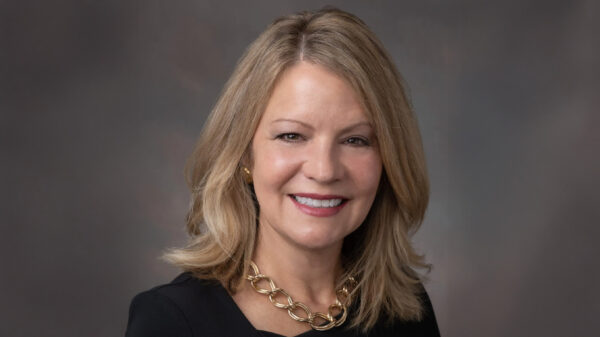The federal government is running a 90 percent discount on Medicaid, the joint federal-state health insurance program that covers very low-income people. Expanding Medicaid in Alabama would cut the state uninsured rate by an estimated 43 percent, reduce uncompensated care costs for struggling hospitals and bring in billions of dollars in new revenues for the state.
In light of COVID, it is time for a fresh perspective on what Medicaid expansion can do for Alabama. Gov. Kay Ivey, and most state leaders opposed to expansion, claim Medicaid expansion is too expensive. Yet, decades of poor health outcomes and an unacceptable 3,000 COVID deaths in our state show there is a hefty price to pay for doing nothing.
Ivey dismissed Medicaid expansion as “irresponsible” this April. What’s truly irresponsible is sitting back as Alabama hospitals struggle to cover nearly $700 million in uncompensated care bills for uninsured patients who would be covered if Alabama expanded Medicaid.
More than a dozen hospitals have closed since expansion became an option, and 88 percent of Alabama healthcare facilities are operating at a loss. Not only is Medicaid expansion the most efficient way for Alabama to provide health coverage to vulnerable populations, but it also provides much-needed relief for our local health systems.
With all the facts in front of us, it would be irresponsible to consider anything but fast-tracking Alabama to expansion status as soon as possible, especially during a pandemic. Expanding Medicaid would provide health insurance coverage to 290,000 Alabamians at an annual cost of only $750 per year. These Alabamians include 185,000 workers, and about 18,000 uninsured Alabama veterans and their spouses. The program requires enrollees to be a full-time resident of the state and legal citizens.
So, how would Alabama pay for Medicaid expansion? And is it worth it?
First, Alabama taxpayers have already paid the federal taxes that would provide 90 percent of the funding for Medicaid expansion. These taxes are mandatorily charged to all Alabama citizens – regardless of the state’s expansion status. Right now, Alabama is forfeiting a 90 percent discount on health care for working families who need it most and sending it to other states who have expanded.
Second, Medicaid expansion benefits all of Alabama. As shown in Louisiana, expansion cuts high health care spending at its roots and brings in new revenues that more than offset the cost of the program. In the first five years of expansion for Louisiana, the state recorded $677 million in savings and expects to save another $1 billion over the next decade. The University of Alabama in Birmingham estimates that Medicaid redesign in Alabama would raise an additional $1.7 billion per year in new revenue for health care providers and $1.2 billion in new revenue for the state economy overall.
We already have a blueprint to get this done. Five years ago, Governor Bentley created a Task Force to study the effect of expansion in 2015. In a final act before his impeachment, Bentley ignored his own Task Force’s recommendation to expand Medicaid in Alabama. Alabama needs to cross the finish line on expansion – and there is only one senatorial candidate to get us there: Senator Doug Jones.
Senator Jones introduced the States Achieve Medicaid Expansion (SAME) Act to provide Alabama a second chance at the great incentives offered at the beginning of Medicaid expansion. If passed, the bill would restore 100 percent federal reimbursements for the first three years of Medicaid expansion – the original deal which was on the table when state legislators mistakenly refused expansion in 2014.
Jones has quickly established himself as a bipartisan politician who fights for Alabama – successfully partnering with Senate Republicans to protect the Children’s Health Insurance Program (CHIP), which provides health insurance for over 150,000 Alabama children. Jones has clear, actionable plans for health care; the same simply can’t be said for his opponent, Tommy Tuberville.
I want to provide you with a fair assessment of Tuberville’s healthcare platform – but he does not have one. It is difficult to dignify the 57 words on his website as a healthcare “plan”. There are no public statements to add clarity for Tuberville because his campaign refuses to take the stage. Just this week, the Tuberville campaign refused to attend a debate at Auburn University – co-sponsored by the Republican and Democrat student associations. A candidate who refuses to speak to the people of Alabama during his campaign will surely not speak for them once elected.
Alabama needs a Senator who effectively reaches across the aisle to fight for all of us. We don’t need to guess who that might be. Doug Jones has shown us who he is–a principled, diligent leader who believes in Alabama’s potential. In just two years in office, Jones has led or co-led 22 pieces of bipartisan legislation that became law. He is also just the second senator ever to earn dual honors for bipartisanship and pro-growth leadership during their inaugural year.
Meanwhile, Tommy Tuberville only moved to Alabama in March 2019 and voted in Florida for the 2018 election. He doesn’t know this state or what it takes to get things done in an intensely polarized environment. No matter who is President, or which party controls Congress, Doug Jones will fight for smart investments that will make Alabama stronger and healthier. I urge you all to vote for Doug Jones this November.




















































